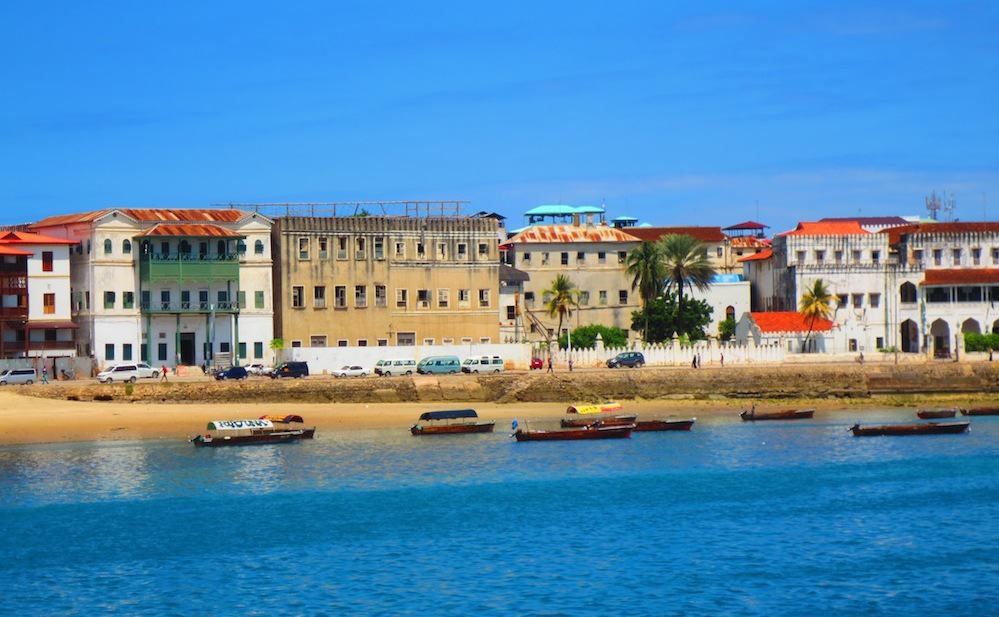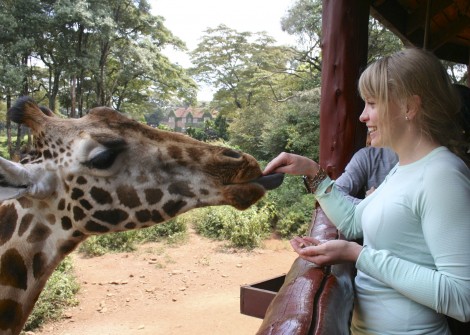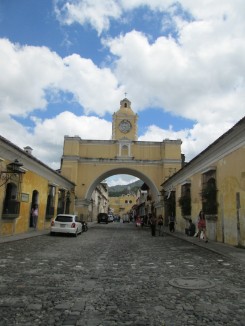The beginning of September brings with it photos and tales of summer adventures. Some students bring back stories from their experiences volunteering abroad — whether on faith-based service trips, short-term volunteer internships, or longer term internships for professionals seeking to give back in a meaningful way.
There is no question that volunteering and interning abroad is growing in popularity. The “voluntourism” industry is growing exponentially to serve this mounting interest. Nevertheless, there has been much backlash against going on such trips, as they are increasingly seen as a new form of neocolonialism. Some have critiqued such experiences, saying that they propel the Western saviour complex, and are much more focused on personal fulfillment than tangible benefits for the host communities.
To read postcards from U of T students interning overseas this summer, click the picture below:
There are many cases of internships where more harm than good is achieved. Take the example of the pre-medical interns who administer vaccines and medications because of the unfounded trust given to them due to their privilege of being from the developed world. The risk of adverse effects, likely to occur in such a situation, is unethical and does a disservice to patients. Other interns, such as law school hopefuls, assist in human trafficking cases, for example, with no regulatory oversight of the information they may dispense and the actions that may be taken because of it.
Still, not all overseas volunteer and internship opportunities are rife with unethical practices and shortsighted visions. Some pursue actions to mitigate risks to host communities. Students for International Development (SID) is a Toronto-based, not-for-profit organization that has worked in Kenya and Peru for the last seven years. Initially a club at Trinity College at University of Toronto, SID was born out of a frustration with the voluntourism industry, which was more interested in making profits than in ethical development work. SID’s core purpose is to provide students with meaningful opportunities without having them pay extravagant amounts, and it also believes in holistic community development that works cross-sectorally across local communities. Since 2007, over 100 SID members have travelled to Kenya and Peru as project managers, conducting diverse projects — such as the construction of much needed health care centres, micro-finance programs, child sponsorship programs, and innovative agricultural initiatives.
The African Medical and Research Foundation (AMREF) Canada is an international African-based non-governmental organization focused on improving health for marginalized and vulnerable people in Africa. Its main strategic priorities include improving maternal health; reducing mortality of children; scaling up response for HIV/AIDS, tuberculosis, and malaria; dealing with diseases and illnesses related to water, sanitation, and hygiene; improving access to diagnostic and clinical services; and strengthening global health knowledge in the public domain. With offices in Ethiopia, Kenya, Senegal, South Africa, South Sudan, Tanzania, and Uganda,
AMREF has a strong presence in sub-Saharan Africa, and is focused on implementing programs across the continent. Currently, its 2013 cohort of 10 interns are spread throughout Kenya, Tanzania, Uganda, and Ethiopia on six-month internships focusing on knowledge management, training and documentation, monitoring and evaluation, and operational research.
Organizations such as SID and AMREF Canada have hosted internships for students and young professionals for many years. They do so by fostering meaningful ethical experiences for their interns without compromising their commitment to make high-quality contributions to community-driven initiatives.
Selectivity and training
The selection process for interns, and how their placements are formulated, is just as important as the work an organization does, serving as a reflection of its vision and mission. Working abroad requires people with a tenacious attitude, who are prepared to work hard in the face of frustrating circumstances and are cognizant of the ethical and philosophical quagmires of living and volunteering in another country.
AMREF Canada develops job descriptions for intern positions in collaboration with colleagues in African national head offices. This ensures that the interns selected have skill sets to match the needs of the offices and serve in areas of limited capacity. Coordinating the hiring of interns with the African offices allows AMREF to anticipate the experience of incoming interns and efficiently absorb the new cohort of interns through customized in-country orientations.
Going into an internship without some semblance of direction or defined deliverables can be problematic for both the intern and organization. A detailed job description ensures that work on the ground has been properly planned, and demonstrates there is indeed a real need for specific volunteers. Expanding the job duties to respond to changing demands and priorities is to be expected, but having a blueprint from the outset sets the expectation for the work you will be doing.
Organizations that seek to implement development projects and services effectively are motivated to have high-quality training programs to prepare their interns for the transition to working in the development sector. Organizations such as SID offer training on project management, budgeting, health and safety abroad, conflict management, intercultural competence, ethics in international development, program evaluation, documentation preparation, and needs assessments. Rukshan Mehta, executive director of SID, explains: “With an emphasis on cultural integration, local knowledge and expertise, we have deconstructed the traditional voluntourism model and work hard to engage in projects that are beneficial to the communities we work in, generated and driven by them.”
Todd Carmicheal, director of programmes at AMREF Canada, notes that organizations that truly engage with the principle of being community-driven employ, “an ethic of remembering that we are doing what we can to support a process with communities, understanding that they aren’t powerless. Communities don’t need solutions from the outside, they need support to realize the achievement of their rights and wants.”
Similar to AMREF Canada, SID also seeks to understand and act upon the needs of local communities, ensuring: “the exchange of experience received by our PMs [Project Managers] is well compensated for in the value our projects bring to local partners.” Mehta adds that SID does not “replicate what local organizations and governments do, [but] rather compliments their work and fill in voids and gaps in service provision, delivery, and resource needs.”
Long-term consideration
North Americans have an incredible amount of privilege when traveling, working, and volunteering in the Global South by virtue of being citizens of the wealthy and educated west — despite their personal circumstances. This is problematic for those volunteering abroad because this association can create compromising situations. The intern volunteering in a rural hospital or clinic with no professional training, administering vaccinations, or other clinical tests may have conferred with status, power, and uncorroborated trust simply on the basis of being a foreigner.
To mitigate this, SID ensures that all volunteers going abroad not only have a proper understanding of the culture, language, and sector they are working in, but have a detailed plan on what they hope to achieve on their term overseas. At SID, project proposals must be drafted, budgets must be prepared, and partners on the ground have to be identified and contacted well in advance of setting foot in the country to ensure funds are being used responsibly and with clear foresight. Mehta elaborates: “The fiscal responsibilities placed on our Project Managers, in addition to the intensity of the work done, the demands of time constraints, fiscal challenges, and resource availability are simulations for the ‘real world’ and serve as excellent preparation for them to undertake longer-term placements with larger organizations moving forward.”
After months of service and dedication to development projects, there should be a plan to ensure that the work will continue following the departure of interns. Responsible host organizations ensure that time and capital investment bear fruit. SID makes a point only to initiate projects that keep in mind the financial, time, and resource constraints faced by the interns. If there are projects that need to be continued after the intern’s time in the host country, qualified local Kenyan or Peruvian personnel are hired to sustain the project’s activities. At the conclusion of their term abroad, project managers compile transition reports for each development project, complete with budgets, vendor lists, contact information of local partners and resources, and a list of recommendations for future possibilities with the project.
Potential for change
The multidisciplinary fields of international development and global health are complicated and not without their challenges. Carmichael reflects: “I’ve always said that working in this sector, the highs can be very high and the lows can be very low. In a lot of cases, we are dealing with enormous problems that require large investments and long timelines to really see tangible change on a macro scale.”
Despite the challenges, the experiences gained can be transformative for volunteers — not simply another resume item, but a source of insight resulting from living another way of life and genuinely contributing to positive change. Carmicheal notes: “Working in this sector has given me the opportunity to contribute to meaningful work. At its grandest moments, there is life-changing impact for communities. The opportunity to be part of that is personally and professionally rewarding.”
In the west, we are presented with images of poverty, disease, and violence faced by those living in the Global South. It is understandable to want to do good, and that should be seen as a positive sign of empathy — but good intentions, while admirable, are not enough. They must be tempered with careful analysis of the true impact of the actions taken now on the future of communities. When volunteering abroad, there is potential to be either a boon or a burden to the community. It’s imperative that summer volunteer programs are aware of where they lie on that tumultuous spectrum. Those who successfully navigate it allow volunteers to contribute their energies to initiatives genuinely and successfully focused on the alleviation of poverty and human suffering.
Other opportunities
There are many University of Toronto affiliated initiatives that have overseas opportunities in international development.
The University of Toronto Namibia Internship Program facilitates 11-week summer term internships with host organizations in Namibia for academic credit. The internships are focused on Namibia’s HIV and AIDS epidemic and offer a mutually beneficial partnership where students have an exceptional learning experience while also addressing needs of the host organization’s institutional capacity needs.
Initiative for Drug Equity Access (IDEA) at the Leslie Dan Faculty of Pharmacy is another U of T endeavor that pairs accomplished and enthusiastic students with organizations involved with equitable access to medicines. Past host organizations include Rabin Martin in New York, Sanigest in Costa Rica and UNITAID in Geneva, Switzerland.
Engineers Without Borders – University of Toronto Chapter is another way to explore the field of international development with an organization with decades of technical expertise and implementation experience in resource-limited settings.
University of Toronto International Health Program (UTIHP) administers Discovery Fund UTSU scholarships supporting global health research conducted by undergraduate students at the University of Toronto. This assists in paying for travel, administrative and research costs of implementing research studies abroad.





